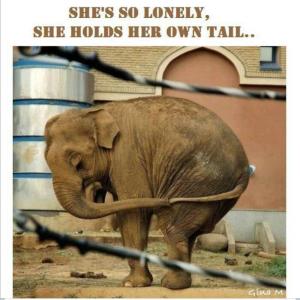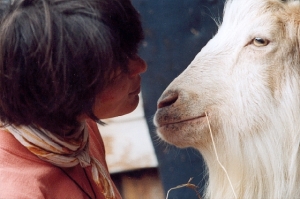Tags
activism, animal activism, animal liberation, animal rights, animal rights community, communication, veganism
Livid. Enraged. Sorrow. That’s what I felt after leaving a level IV Shambhala meditation class. Throughout the entire weekend, I found myself triggered by the director’s teachings and by comments from the other students. I felt incredibly sensitive to comments made about animals and jokes made at their expense. I began to feel disheartened after the teacher indicated that the Shambhala teachings are not necessarily paths of social justice. Teachings aside, the meditation technique actually helped me to be present and see how I was being triggered. It also helped me to see how deeply triggered I am when animals are concerned. After class, at the reception, I was angry by the limited vegan options. I spend a lot of time in non-vegan spaces, so I have conditioned myself not to get triggered every time, but this time I couldn’t help it. I was raw. You see, I had just received some news that left me aghast. My father has been missing, or rather unreachable, for almost a year. He seems to have literally disappeared from the face of the Earth. Since the bill collector can’t reach him, I’m receiving the calls and texts daily. As a consequence, I’ve been unnerved and depressed all week. In society, we are bombarded with imagery and stories that remind us of the status quo of animal oppression, encouraging us to take heart in exploiting animals and be disaffected by their experience. So when I encountered this again and again in the Tibetan Buddhist-influenced Shambhala Center, my heart could no longer contain it.
One thing led to another, and I let my rage pour. And thanks to the meditation technique, I was present with it most of the time, which left me even more unnerved because I’m not used to experiencing sustained rage. One of my acquaintances at the center tried to entice me to stay with gluten-free blueberry pie. After all, it’s gluten free! In Asheville, veganism is just another alternative healthy food lifestyle. Most of the self-identified vegans I know are driven by health consciousness. Normally I don’t hate on this at all, but as I mentioned before, I was feeling raw and suffering from sustained rage.
“On second thought, the pie probably has some animals in it,” she said playfully.
“Of course it does,” I responded in a snide tone, “After all, I’m the only person in this building who gives a shit about animals.”
She looked taken aback and wanted to say I was wrong, but she did not say anything. Instead, she looked away. Meanwhile, another acquaintance who was there joined the conversation and began to sharehow he was a strict ovo-lacto vegetarian and his reasons for it and how he used to be vegan but dah-dah-dah dah-dah. I didn’t have to say anything: the look on my face said it all. He quickly became offended. I became offended from the offense. Then began the raging conflict of values about animals, eating animals, and animal rights I try so hard to avoid. He left upset. I left upset. But before I left, he wanted to get me to say that eating animals is right. He said, “You would not be here today if it weren’t for your ancestors eating animals.”
So often, I find that in these types of conversations, the other person often expects me to see where they are coming from without any effort on their part really to see where I’m coming from. There is no mutuality, and I don’t know how to demand it without getting worked up. My acquaintance described my rage as a stormy cloud that most people cannot endure without feeling some degree of devastation. On the flip side of that, my joy is one of the most uplifting experiences of her life, and others have told me how I inspire them to believe they can accomplish their full potential. I realize I have this power in interpersonal relationships. But when it comes to animals overall, I feel incredibly powerless. No outreach technique, no style of activism, no philosophical grounding have ameliorated this feeling.
So I ask myself, if I feel so powerless when it comes to helping animals, why do I still cling to the idea?
The answer, though not satisfying, is because I must. I am compelled. I long for animal liberation from the core of my being. It is just as important to me as a race-free, class-free society, the uplifting empowerment of black women, gender equality, and queer liberation. Why is this? I feel like an anomaly. I have no animal rights community. I have been trying to nurture the possibilities and spirit of animal liberation in black and queer of color communities in which I am very active. I try to include consideration for animals all the time, and I am even mentoring one of my sistas in transitioning to a vegan diet. To be honest, I wouldn’t say my efforts have been in vain, but they are moving incredibly slow. Sometimes, I question whether the potentiality is there at all or if I’m just deluding myself to hope that animal liberation can be genuinely included in communities of people aspiring for their own liberation. When it comes to animal liberation specifically, very few of us, even within the animal rights community, seem to have this longing. For one, what does it mean? We don’t have a shared understanding of the term. Perhaps it’s too big, too esoteric, too philosophical. Yet, it’s so powerful. I, for one, can feel some sense of what animal liberation means in my body, in my relationships with other animal bodies. Why do I long for animal liberation? The cynical reason is because I am tired of day after day, seeing, hearing, and sometimes even smelling the oppression of animals. I am utterly exhausted, not enough to give up, but exhausted enough to try all of my options. I am not content with being a witness. Unlike the Buddhist lesson I just received today, I do not believe it is enough just to be with the suffering, the tenderness of witnessing someone’s suffering. I believe doing something is absolutely essential. It doesn’t have to be marching or leafleting in the streets. It doesn’t have to be smooching politicians. It doesn’t have to be exhausting all of my financial resources in rescuing animals from pits. And it doesn’t have to be writing scholarly articles. Or it could be all of those things and more. The action may not be obvious at all. It may be subtle, unexpected in its potency. But it is something and it is within my capacity, my motivation, my power to do it. Now the tricky part for me is being convinced that whatever that something I’m doing is enough.
The uplifting reason is because I want to live in a world where it is the norm, not the exception, for living beings to live in dignity and freedom. Often, however, when I try to communicate this uplifting vision to people who are not awakened to animals beyond material resources, playthings, and cultural/religious symbols, the message is lost. Animals are not included and it gets interpreted as a New Age, apolitical thing. After having this failed communication tonight, I want to explore how I can be a better communicator when it comes to animals. I want to be able to handle any kind of conversation with an awakened heart, with stability, and with sheer confidence. So far, I get thrown off my seat every time I talk about animals or anything moderately related to animals (veganism included). Rather than the topic be an argument of ethics and values about animals, I want to aim every conversation as an opportunity to expand and deepen the possibilities of animal liberation.
Is anyone willing to help me with this challenge?



